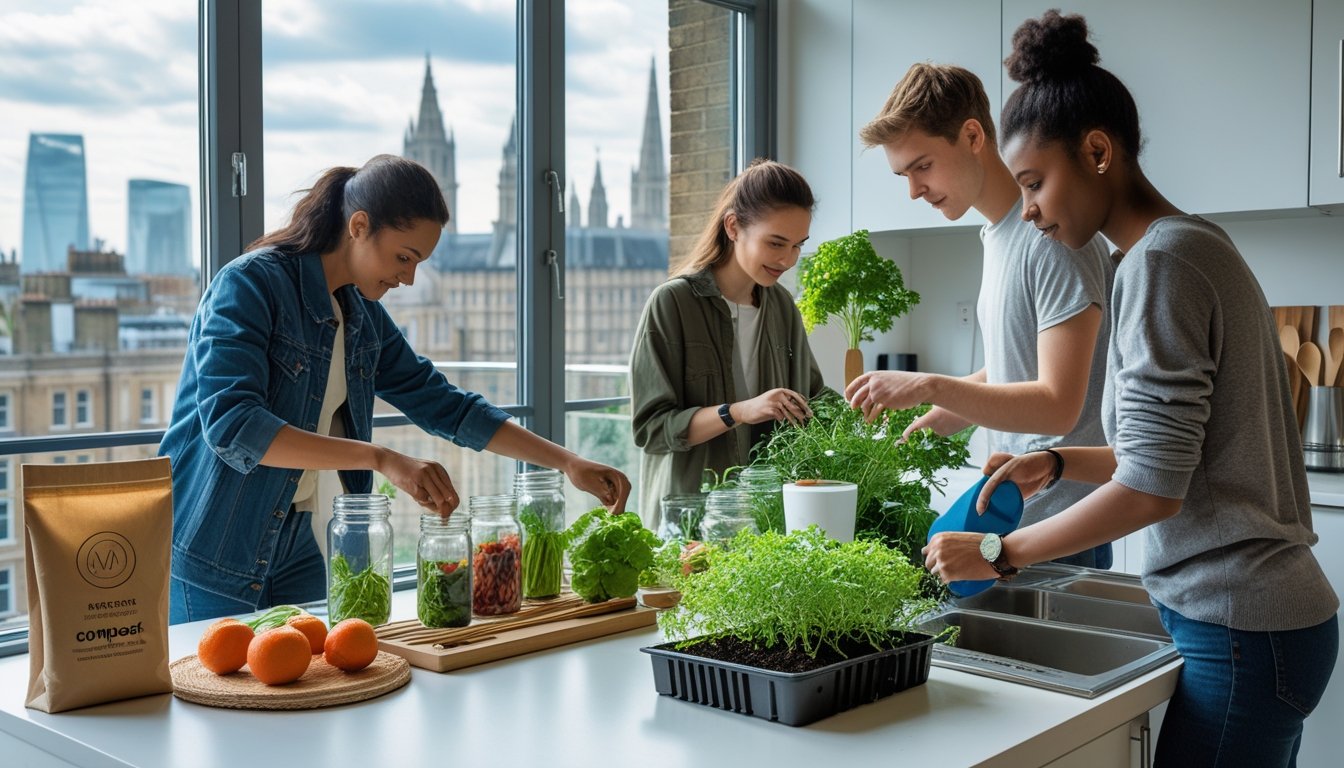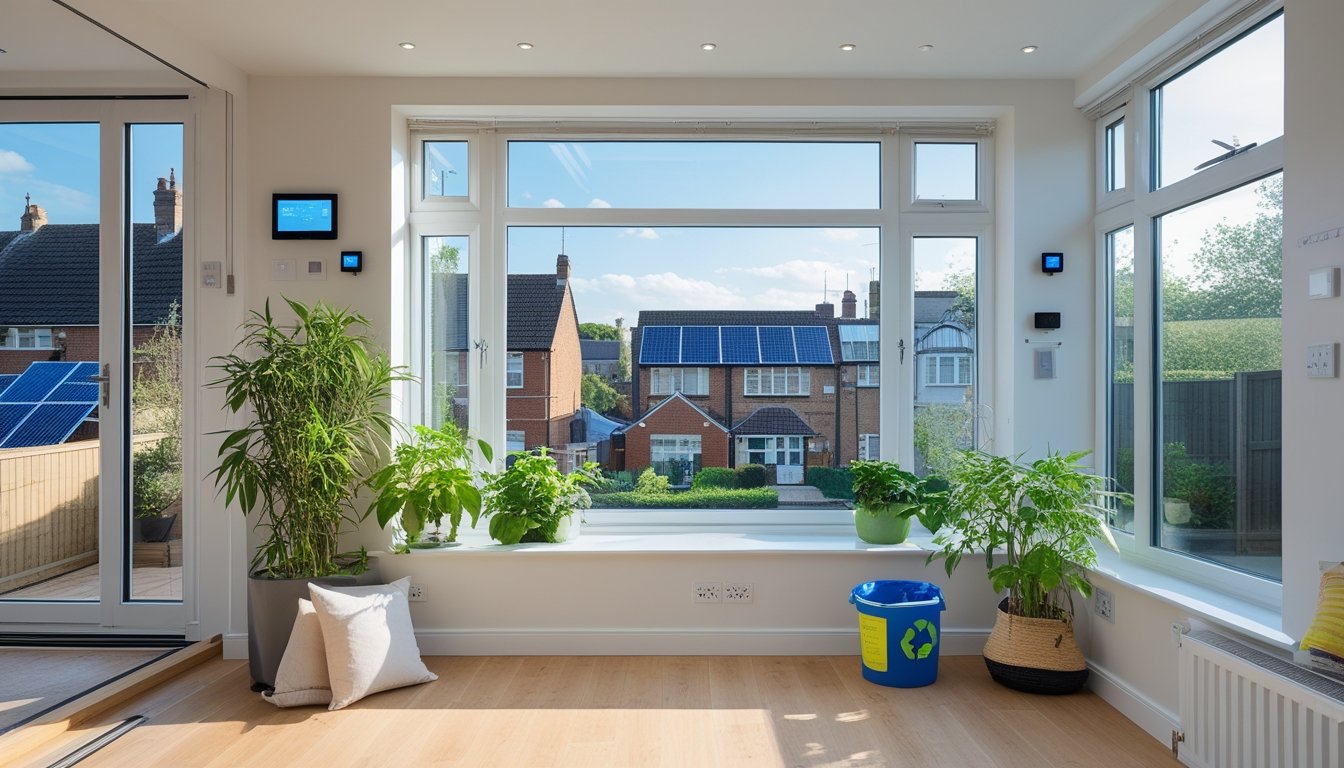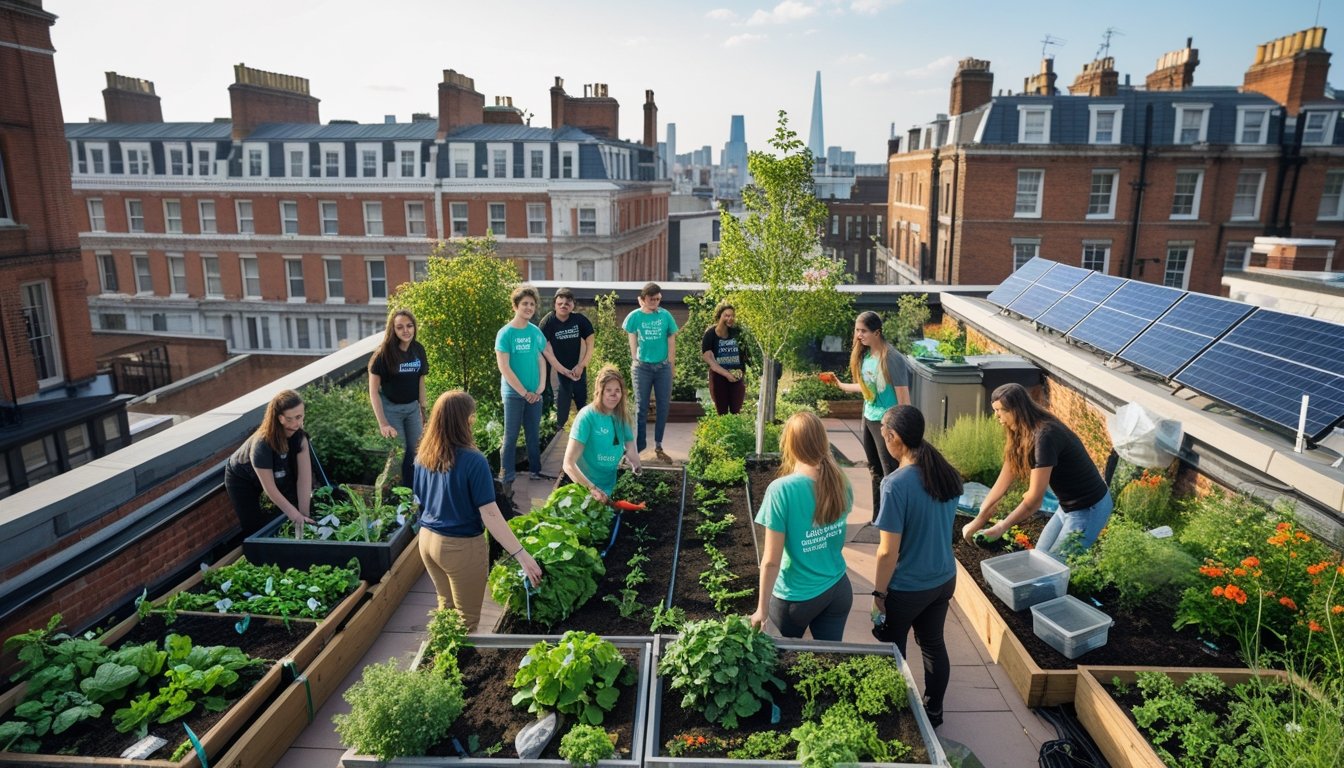Late updated: 30 Jul 2025 14:07
Written by: Eleanor Hartman
Sustainable Living Tips For Urban UK Dwellers: Practical Strategies For Everyday Life
Living sustainably in an urban environment like the UK can seem challenging, yet it offers numerous opportunities to make a positive impact. As urban dwellers, we often encounter unique hurdles, but these can also become avenues for implementing eco-friendly practices. Whether you're navigating bustling city streets or living in a compact flat, there are practical steps we can take to lead a greener life.

Reducing waste and maximising energy efficiency are key strategies urban residents can embrace to contribute to a sustainable future. Installing energy-efficient appliances or forming local community initiatives around recycling and green spaces can make significant differences in both environmental and personal well-being. Sustainable urban living is not merely about making individual changes; it's also about fostering a community that values the environment.
The heart of urban sustainability lies in everyday choices we make, from supporting local markets to opting for public transport. Our collective actions shape the environment and contribute to a better quality of life. This blog post delves into various tips and practical steps that align with sustainable living, helping us emerge as responsible citizens within our vibrant urban communities.
Key Takeaways
- Urban living offers numerous chances for sustainable practices.
- Energy efficiency and waste reduction are crucial in cities.
- Community engagement enhances urban sustainability.
Essential Sustainable Living Tips for Urban UK Dwellers
In urban settings across the UK, embracing sustainable living is both practical and impactful. Focusing on our environmental footprint, water conservation, and waste management can collectively make a significant difference.
Minimising Environmental Footprint in City Life
Urban living often entails a demanding lifestyle where convenience takes precedence. However, small changes can help lessen our environmental impact. Public transport, cycling, and walking are excellent alternatives to driving. These options not only reduce emissions but also alleviate traffic congestion.
Adopting a plant-based diet even partially can cut carbon emissions. We can choose locally-sourced foods, reducing the carbon footprint associated with transport. Energy-efficient appliances and LED lighting are effective in lowering electricity usage. As city dwellers, these shifts are within our reach and beneficial for the planet.
Practical Water Conservation Habits
Water conservation is vital for sustainable urban living. Many of us are unaware of the volume of water wasted daily. By installing low-flow showerheads and dual-flush toilets, significant water savings can be achieved. Additionally, collecting rainwater for gardening or other non-potable uses is an excellent conservation method.
When washing dishes or clothes, full loads are more efficient, maximising water use. We should also be mindful when brushing our teeth or shaving, turning off taps to prevent unnecessary waste. Simple actions collectively make a substantial impact on our water bills and the environment.
Smarter Waste Reduction and Recycling
Recycling and waste reduction are crucial elements of sustainable living. We should familiarise ourselves with local recycling schemes to ensure proper sorting of recyclables. Composting organic waste not only reduces landfill volume but enriches soil when done correctly.
Purchasing products with minimal packaging or those made from recycled materials supports waste reduction. Adopting a repair and reuse mentality can extend the life of our belongings. By investing in reusable items like shopping bags, water bottles, and coffee cups, we actively combat single-use plastics.
By integrating these practices into our daily lives, urban UK dwellers can significantly contribute to a more sustainable future.
Maximising Energy Efficiency in Urban Homes

In urban settings, improving home energy efficiency involves strategic choices. Leveraging energy-efficient appliances, managing power consumption carefully, and embracing modern lighting solutions are key actions. We should also explore community gardens for sustainable living.
Making the Switch to Energy-Efficient Appliances
Urban dwellers can significantly reduce energy consumption by investing in energy-efficient appliances. These appliances use less electricity, helping cut down on utility bills and reducing the environmental footprint. Fridges, washing machines, and ovens with high energy efficiency ratings can make a noticeable difference. As well as energy savings, these appliances often have a longer lifespan, promising a good return on investment. When choosing appliances, look for the Energy Rating label, which indicates the efficiency level.
Energy Star-rated gadgets tend to perform better while consuming less power. Making informed choices about appliances leads to immediate and long-term benefits, affecting both our finances and the planet positively. Let’s prioritise energy efficiency when shopping for household goods.
Utilising Smart Power Strips for Everyday Savings
Smart power strips offer a simple yet effective solution to managing power use in urban homes. These devices help us eliminate standby power consumption - the energy used by electronics that remain plugged in but not operational. By automatically cutting power to devices when they aren’t in use, smart strips reduce unnecessary consumption.
Smart power strips can be programmed to operate on a schedule, turning off electronic devices during non-use hours, such as overnight or during work hours. Some strips include motion sensors to detect inactivity and power down connected devices. Using smart power strips is a straightforward way to decrease energy bills, making a real impact without substantial effort. It’s a smart investment for an eco-conscious household.
Adopting Household LED Lighting
Switching to LED lighting is an effective method to save energy in urban homes. LED bulbs consume up to 80% less energy than traditional incandescent bulbs and last much longer. This not only translates to energy savings but also reduces the frequency of bulb replacements.
LEDs are available in various styles and brightness levels, suitable for any room or decor. They provide immediate full illumination, unlike compact fluorescent lights that may take time to reach full brightness. Despite the higher initial cost, the energy savings and longevity of these bulbs make them a wiser choice for sustainable living. Let’s illuminate our homes efficiently by embracing LED technology.
Innovative Urban Community Gardens
Community gardens in urban areas serve dual purposes. They offer space for growing food and promote energy conservation. By producing vegetables locally, we reduce the need for transporting goods to market, cutting down on energy used for transportation.
Urban dwellers can also employ permaculture principles, integrating plant and animal systems to achieve a self-sustaining ecosystem. Shared responsibility for irrigation, tools, and cultivation tasks fosters community collaboration. These gardens can be established on rooftops, balconies, or any available urban space, creating green lungs in densely populated areas. Community gardening not only supports energy-efficient living but also enriches urban environments.
Frequently Asked Questions

We often grapple with the challenges of sustainable living, especially in urban UK environments where space and resources can be limited. This section addresses key queries that urban dwellers frequently ask about living a more eco-conscious lifestyle.
How can I reduce my carbon footprint in an urban environment?
Reducing our carbon footprint involves simple lifestyle changes. We can use public transport, cycle, or walk instead of driving. Additionally, adapting our diet to include more plant-based foods helps. We should also consider using energy-efficient appliances and reducing consumption of unnecessary goods.
What are the most effective ways to conserve energy in a UK flat?
Conserving energy in flats is vital. We can achieve this by switching to LED bulbs and using appliances with a good energy rating. Draught-proofing our windows and utilising smart meters to monitor energy usage also contribute to significant savings.
Are there any UK-specific guidelines for recycling domestic waste responsibly?
Recycling regulations differ across regions in the UK. It is important to check with local councils for detailed guidelines. Common practices include separating waste into recyclable and non-recyclable bins, and knowing which plastics are accepted for recycling locally.
What steps can I take to source food sustainably while living in a UK city?
Sourcing food sustainably can be managed by purchasing from local farmers' markets and choosing organic products. We should also look for Fair Trade certified items and support community-supported agriculture programmes where available.
How can I adapt my transportation habits to be more eco-friendly in the UK?
Embracing public transport like buses and trains is an effective way to travel sustainably. We could also consider car sharing or investing in an electric vehicle. Walking or cycling for short distances reduces our reliance on fossil fuels and enhances personal health.
Can you suggest sustainable clothing brands that are certified B Corps in the UK?
Several UK-based sustainable fashion brands are B Corp certified. These include brands like Rapanui and Finisterre, which are committed to ecological and ethical manufacturing practices. Supporting such brands ensures that our wardrobe choices contribute to a better environment.